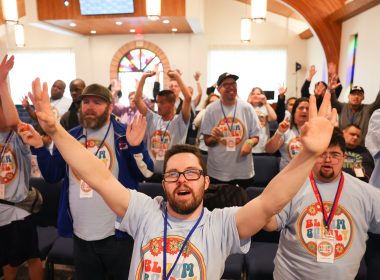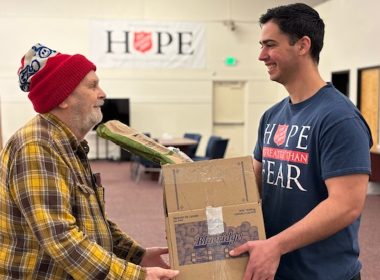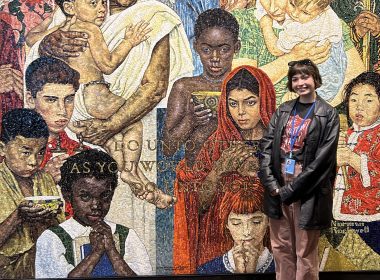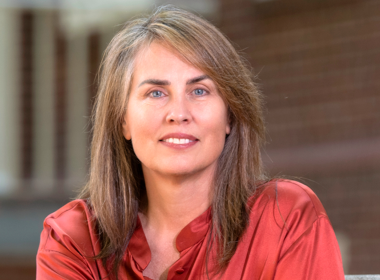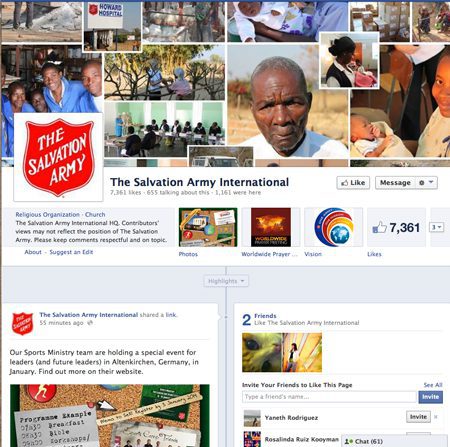By Robert Docter, Editor-In-Chief
Just a few days after the last full moon of the summer, the “shine on” harvest moon fell into our midst exactly on schedule—1:44 p.m., Sept. 22—and left Southern California two days later. Our summer has not yet relinquished its top daytime spot.
The autumnal equinox provides its two hemispheres exactly 12 equal hours of daylight and darkness.
And so, a natural, mutual sharing of the sun between the hemispheres takes place. If it can take place on the scale of earth’s hemispheres while also enriching the hemisphere in some way in every season, why is it difficult for humans, including many Christians, to share themselves with the less fortunate a few hours once a month or once a week?
We seem content to delegate responsibilities Christ assigned to all of us to a few. We say, “I’m too busy” or “I’ve already got other responsibilities.” “It’ s George’s job. Let him do it—besides I wouldn’t know how to talk to the people who come for assistance.”
Excuses.
Historically, the Army’s initial intensive focus was on social salvation. Booth’s soldiers were organized to do the job. They had discovered that it was in poverty that sin festered and grew. He and his troops cared for the poor socially and then won them for Christ spiritually. Getting “saved” was a literal event before it was a spiritual change.
Jesus made it very clear that certain requirements existed for entry to “sheep status” rather than classification as a “goat” (see Matt. 25). He gave examples of what needs to be shared, and they are all “hands on” behaviors that cannot be delegated.
“For I was hungry and you fed me.
I was thirsty, and you gave me a drink.
I was a stranger, and you invited me into your home.
I was naked, and you gave me clothing.
I was sick, and you cared for me.
I was in prison, and you visited me”
(Matt. 25:35-36 NLT).
In our busy schedules, we would probably answer: “When did I do all these things?”
“And the King will say, ‘I tell you the truth, when you did it to one of the least of these my brothers and sisters, you were doing it to me” (25:40).
Humans rationalize inaction easily. However, some of the “excuses” listed above are actual realities in people’s lives. We fight the battle of the clock and find insufficient time. I’m sure it was similar during William Booth’s time as well. Confronting that mindset defines “otherness.”
We do not need to undertake the task of “sheepness” exactly the same way that Booth did 150 years ago. The Army has always “tailored itself to fit the times,” as Dr. Diane Winston wrote in “Red Hot and Righteous: The Urban Religion of The Salvation Army.” We can learn a great deal by reading our history (see Winston’s text and Roy Hattersley’s “Blood and Fire: The Story of William and Catherine Booth and The Salvation Army”).
Booth’s “Labor Bureau,” described in his book “In Darkest England and the Way Out,” found or created employment for both skilled and unskilled workers in the early 1890s. In America, after the turn of the century, the Army “sought to saturate the secular with the sacred.” Evangeline, one of Booth’s five daughters and commander of Army activities in the United States, brought the Army to the theatrical stage and to the streets. Fundraising in the theater supported the Army social work. The street meetings, preceded by a parade,“religionized the secular.”
At the beginning of the 20th century, the Army in America had several kinds of slum brigades, slum sisters, slum missions and slum posts in large cities. Soldiers staffed the leadership of these brigades.
So, bringing our Army’s social ministry up to date as well as more present in the corps is an organizational problem. It will test the dimensions of our creativity, the scope of our motivation, the depth of our salvation and the boundaries of our faith. One thing for certain, one size does not fit all—one program won’t do it alone.
Somehow, each Army corps needs to organize opportunities for people to engage in acts of otherness, to visit the homes and camps and gutters of the overlooked and ignored at least as much as we visit the homes of the wealthy. We need to use the skills that members bring with them.
After all, this otherness behavior is our ethic. It is our identity, our reason for being. Our narrative tells these stories. Our heroes of the past redeemed “trophies of grace.” The world desperately needs what they believe The Salvation Army represents.
Is it still a reality? Have we become the chapel on the corner? Or are we an Army of Salvation?
Let’s get started.


